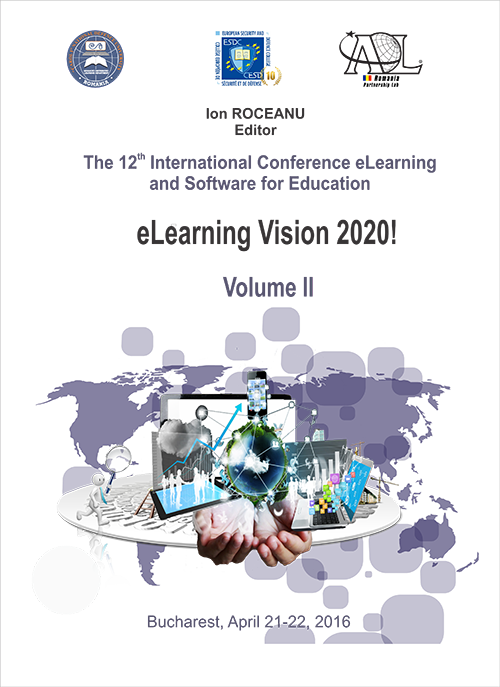NEW LEARNING ENVIRONMENT MODEL FOR THEORETICAL LECTURES
NEW LEARNING ENVIRONMENT MODEL FOR THEORETICAL LECTURES
Author(s): Dubravka Valić NEDELJKOVIĆ, Zoltan Geler, Karlo BalaSubject(s): Education, ICT Information and Communications Technologies, Sociology of Education
Published by: Carol I National Defence University Publishing House
Keywords: theoretical lectures; new learning environment; digital natives; arousing students' attention; IT;
Summary/Abstract: According to many studies the generations of students who are digital natives have different requirements in regard of theoretical lectures in comparison with the generations of non digital natives. At universities in Serbia, theoretical instruction is still conducted in the traditional way, and the Bologna system is applied only selectively. Awarding student participation in theoretical lectures as a part of pre-exam assessment is formal and without clear criteria, which degrades theoretical lectures as they are reduced to the level of awarding attendance and not of awarding active participation in class. The goals of this pilot study are: a) to find answers to the question of how to make students who are digital natives active during theoretical lectures at the university, for the purpose of recognizing more clearly the quality of their participation in class; b) to include the information thus obtained into the decision-making process which provides a more just verdict on their final grade (learning performance of students) and to increase the use of information technology in delivering lectures at universities in the domain of humanities and social sciences. The research examined the effectiveness of arousing students' attention during theoretical lectures in Computer Literacy (Faculty of Philosophy, Novi Sad, Serbia) by using random testing of students' knowledge. Two groups of students were subject to two different approaches to teaching: the traditional approach and the computer-oriented one. The first group of the students attended their lectures in a traditional classroom where students were randomly tested by means of paper-based tests. The other group of students attended their lectures in a modified computer lab in which students were randomly tested by means of a special piece of software. At the end of the course students' attitudes about the traditional and the computer-oriented approach were collected by means of a questionnaire. The preliminary results seem to suggest that students on the whole are not particularly interested to actively participate in classes, but they are interested in collecting pre-exam points based on them attending theoretical lectures.
Journal: Conference proceedings of »eLearning and Software for Education« (eLSE)
- Issue Year: 12/2016
- Issue No: 02
- Page Range: 265-272
- Page Count: 8
- Language: English

